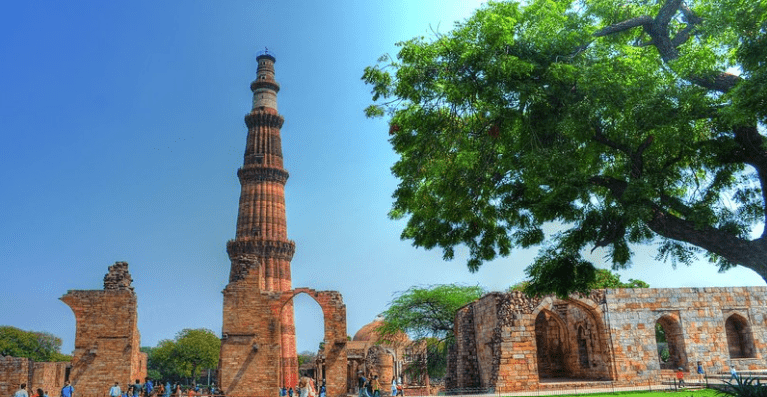
In case: Management Committee of Delhi Waqf Board V. Union Of India and Ors.
The Delhi High Court on Tuesday registered an application to look after directions for permitting prayers at mosques during the month of Ramzan for a hearing on 27th April. As Ramzan this year ends on the 22nof d April or 23rd of April.
A notice has been issued by Justice Manoj Kumar Ohri on the application brought by the Managing Committee of Delhi Waqf Board looking for early disposal of a pending petition against the alleged stopping of prayers in the mosque. One of the prayers in that is to allow prayers at mosques during the Ramzan period.
In this case, the mosque is referred to as a “Mughal Mosque” and is situated in Qutub Complex. Although it is not inside the Qutub enclosure and is not the well-known ” Masjid Quwwatul Islam” where prayers are allowed. In May last year, a restriction was imposed on prayers at “Mughal Mosque”.
The Court seeks retaliation for the UOI and ASI i.e Archaeological Survey of India while listing the application for the upcoming hearing on 27th April.
The important Petition is listed to be heard on 21st August.
The application then moved from Supreme Court to High Court.
Advocate M. Sufian Siddiqui argued on the behalf of the petitioner and Advocate Kirtiman Singh argued on the behalf of Union of India.
In May the court had initially fixed the matter for hearing. On this Advocate M.Sufian Siddiqui submitted that the prayer for permitting namaz during the month of Ramzan would be unfruitful. On 27th April court listed the matter.
The Advocate on the behalf of petitioner again said to the court that the matter would even then become unfruitful, the court had not changed the date of the hearing.
He said that the right to speedy justice is a consequence of Article 21 of the Indian Constitution.
Before, the Union of India delivered to the court that the Mosque is a secured property and that the Saket court seized a matter regarding the same mosque.
Petitioner argued that Section 16 of the Ancient Monuments and Archaeological Sites and Remain Act 1958 says that the officials must maintain the nature of the religion and sanctity attached to it and also protect the rights of worshippers.
The plea states that ” the denial of opportunity to Muslims to offer Namaz in the instant mosque is a manifestation of muscular approach which is antithetical to liberal values enshrined in Constitution and Liberalism reflected in every aspect of the life of common people”.
It also said that the Ex-Consequenti cannot maintain unexplainable and unethical silence for the pitty reason that a citizen has the right to seek redressal of his grievance promptly. In such a case, his right to survey under Article 21 of the Indian Constitution gets curtailed.
Name : Varsha Sukhwal, College: Parul University, Semester: 4th( BALLB)





0 Comments